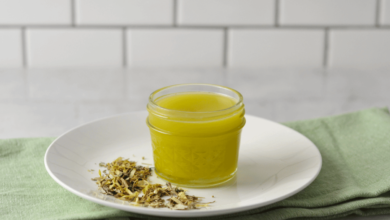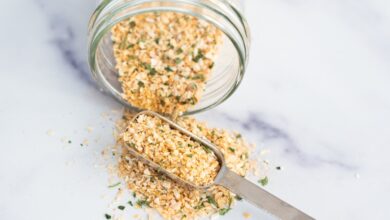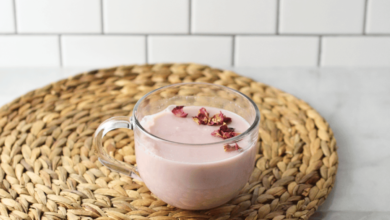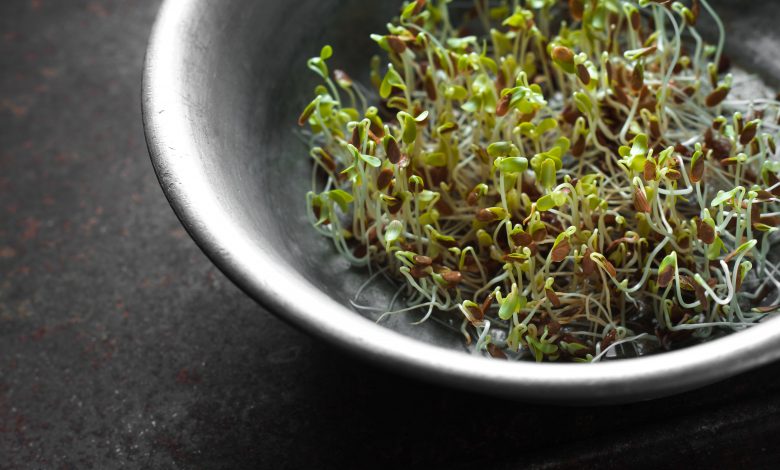
Contents
Eating Green: Everything You Need to Know About Sprouts
Everyone is asked to finish their greens. It is something that we don’t particularly like to do, but we have to do it. Healthy eating is one of the most important things in life. It can help you elongate your life, along with, help you stay fit. We will be looking at sprouts, today, and the benefits of eating sprouts, the potential risks, and a guide to eating one of the healthiest foods you could eat in your lifetime. Read below all about Raw Sprout Benefits.
What are sprouts?
In the simplest of words, if you missed your biology lessons, we will just refresh your memory. Sprouts are the seeds that germinate quickly and have become young plants. To kickstart the germination process, the seeds are soaked in water for a few hours, and then are exposed to the right kind of moisture and temperature, allowing them to grow for around a week.
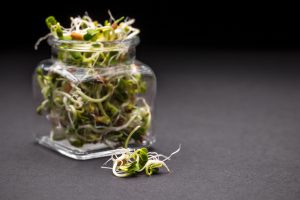
This results in a sprout that measures around 2-5 cm, and, these are considered to have a lot of benefits. However, there are many different kinds of sprouts and we will take a look at some of these, as well.
Sprouts are considered to be powerful, nutritionally. They are usually preferred by people who like to eat healthily and maintain a certain weight. This is mainly because sprouts are very nutritious and also are low on calories.
Types of sprouts:
The most commonly found sprouts are as following:
-
Bean and pea sprouts:
Bean and pea sprouts range from lentils, adzuki, garbanzo, soybean, mung bean, black bean, kidney bean, green pea, and, snow pea sprouts.
-
Sprouted grains:
These range from brown rice, buckwheat, quinoa, and, oat sprouts.
-
Vegetable or leafy sprouts:
Such as radish, beet, broccoli, fenugreek, mustard green, clover, and, cress sprouts.
-
Nut and seed sprouts:
Almond, alfalfa, pumpkin, sesame, radish, sunflowers are the seed and nut sprouts that are readily available in most markets.
You can either eat sprouts raw, as you buy them, after a quick wash or if you prefer to cook them, you can cook them at light heat and then consume them.
Benefits of Eating Sprouts Daily:
The benefits of eating sprouts, daily, are tremendous. We will take a detailed look at all the benefits they bring and why we should make sure we incorporate sprouts into our diet.
-
Sprouts are nutritious:
Like we mentioned above, sprouts are one of the most nutritious food you can eat, especially, given how low they are on calories. This is mainly because of the sprouting process that increases nutrition levels, along with increases the protein, folate, magnesium, phosphorus, manganese, and vitamins like C and K than un-sprouted plants. At the same time, they have a higher level of essential amino acids, with certain amino acids increasing to almost as high as 30%!
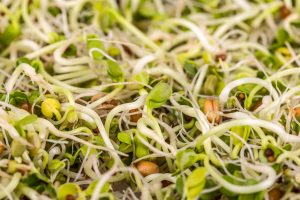
Sprouts are a good source of antioxidants, and other beneficial plant compounds and foods made from sprouted beans tend to be more nutritious, as well. For example, soymilk that is made from sprouted soybeans tends to have more protein, less fat, and, fewer antinutrients as compared to un-sprouted soybeans.
-
Sprouts help control blood sugar levels:
This has been proven by some studies, as sprouts tend to have lower carb levels. However, other studies argue that sprouts have an increased ability to regulate activity of enzymes that help in breaking down food a lot faster and in digesting sugars.
There have been studies that show that sprouts are really good for type 2 diabetes in controlling blood sugar levels, however, it is not proven why this is the case.
-
Sprouts improve digestion and heart health:
Once seeds are sprouted, the amount of fibre they contain increases and becomes readily available. This shows that sprouts are a good source of protein, and are also easier to digest as the antinutrients are decreased due to the process of sprouting.
Sprouts are also fantastic for the health of your heart. Having sprouts incorporated in your daily diet, reduce the risk of heart diseases like increased blood cholesterol levels. They may improve heart health by increasing the good HDL cholesterol and similarly decreasing the bad LDL cholesterol.
How to eat sprouts safely:
Raw sprouts, in particular, like any other fresh produce that is consumed raw or lightly cooked, carries the risk of foodborne illnesses, if they are contaminated. However, this risk is greater in sprouts, because the warm, moist conditions of growing sprouts are also what bacteria like, E. coli, listeria, salmonella, need. Raw sprouts during pregnancy should be avoided, as well.
So, what is the procedure of consuming sprouts? You should consume sprouts that are labelled ready to eat, according to the FSA (Food Standards Agency). Any other sprout should not be consumed raw, they should be eaten after cooking them or steaming them. Avoid eating sprouts that have turned brown or have changed their colour, and should not be used past their date.
Also, it is important to understand that, washing sprouts, only, does not rid them of bacteria. They should be thoroughly cooked unless they are labelled ready to eat.
Best Sprouts to Eat:
This largely depends on your preference. If by best you mean, the most delicious to eat, then it is hard to say as the tastebuds vary from person to person, however, we will list the most commonly eaten sprouts.
Best Tasting Sprouts:
This is based on the most purchased sprouts.
- Sunflower Sprout Seeds
- Alfalfa Sprout Seeds
- Barley Sprout Seeds
- Garlic Sprout Seeds
- Lentil Sprouts
Most Nutritious Sprouts:
While most of the sprouts have a high nutrition chart, these are the ones, which are the most nutritious:
-
Mung Beans:
Nutrition in mung beans – 100g of boiled mung beans contains more than 7g of protein, 19.15g of carbs, including 2g of sugar and 7.60g dietary fibres.
-
Sunflower Sprouts:
High in protein, phytosterols, essential fatty acids, and fibre.
-
Lentil Sprouts:
Excellent source of protein and a great way of consuming lentils.


